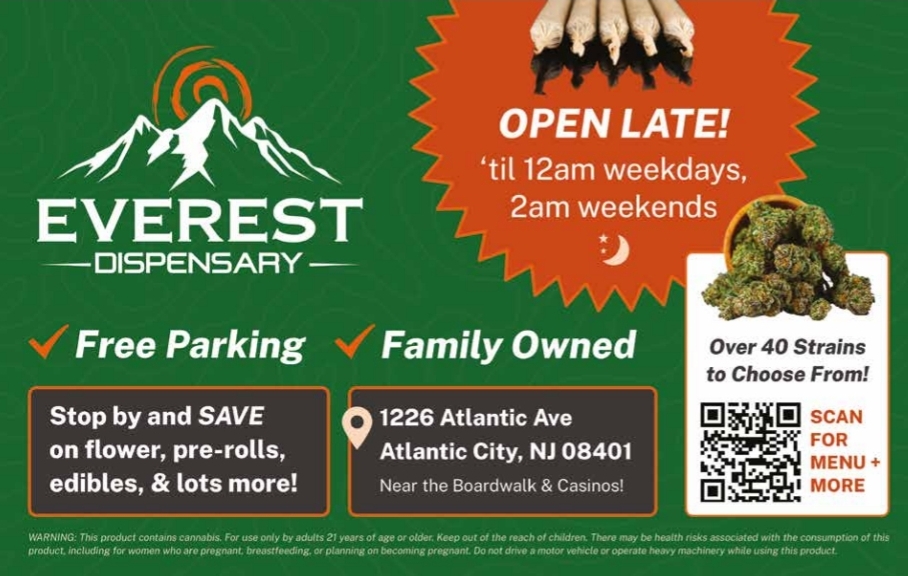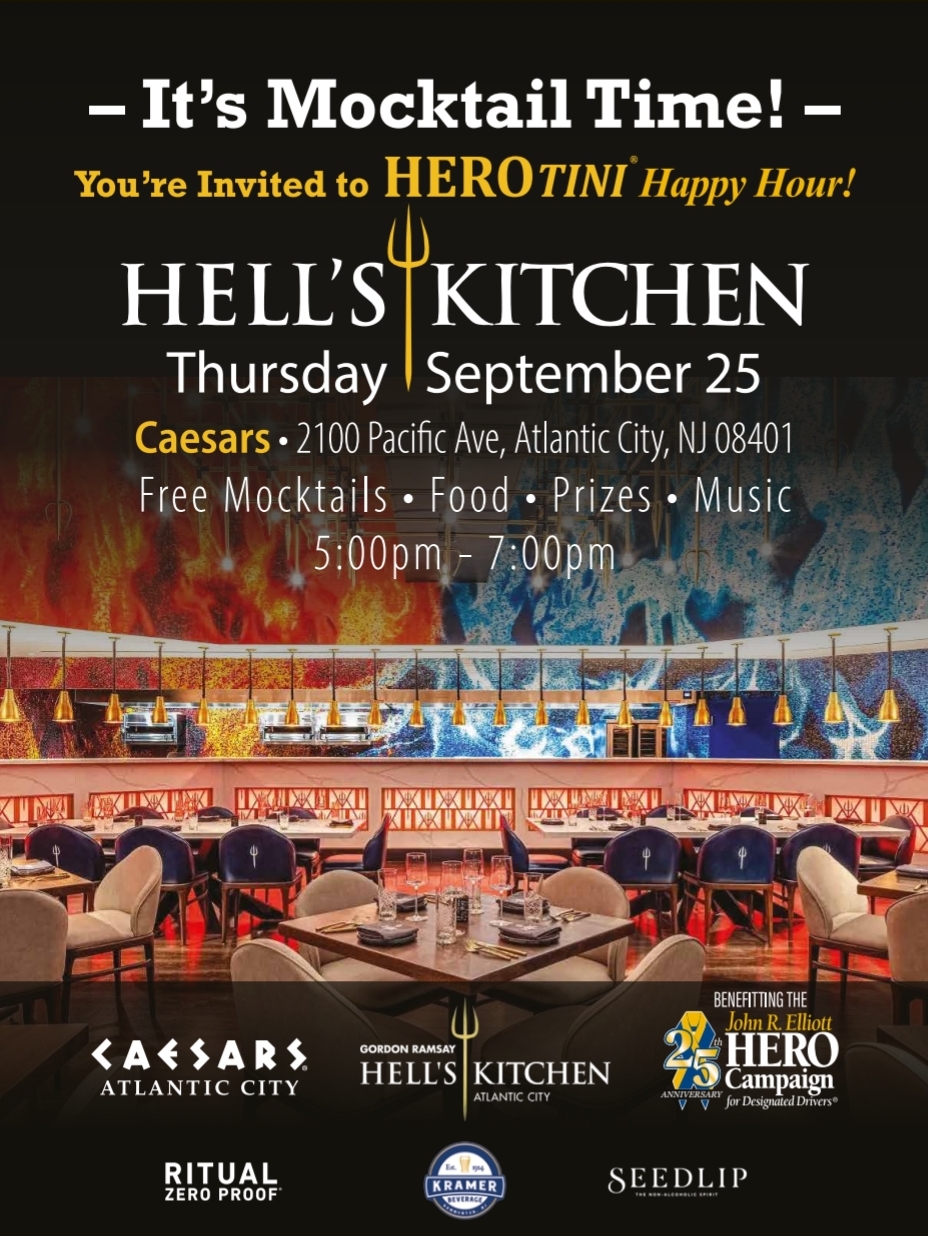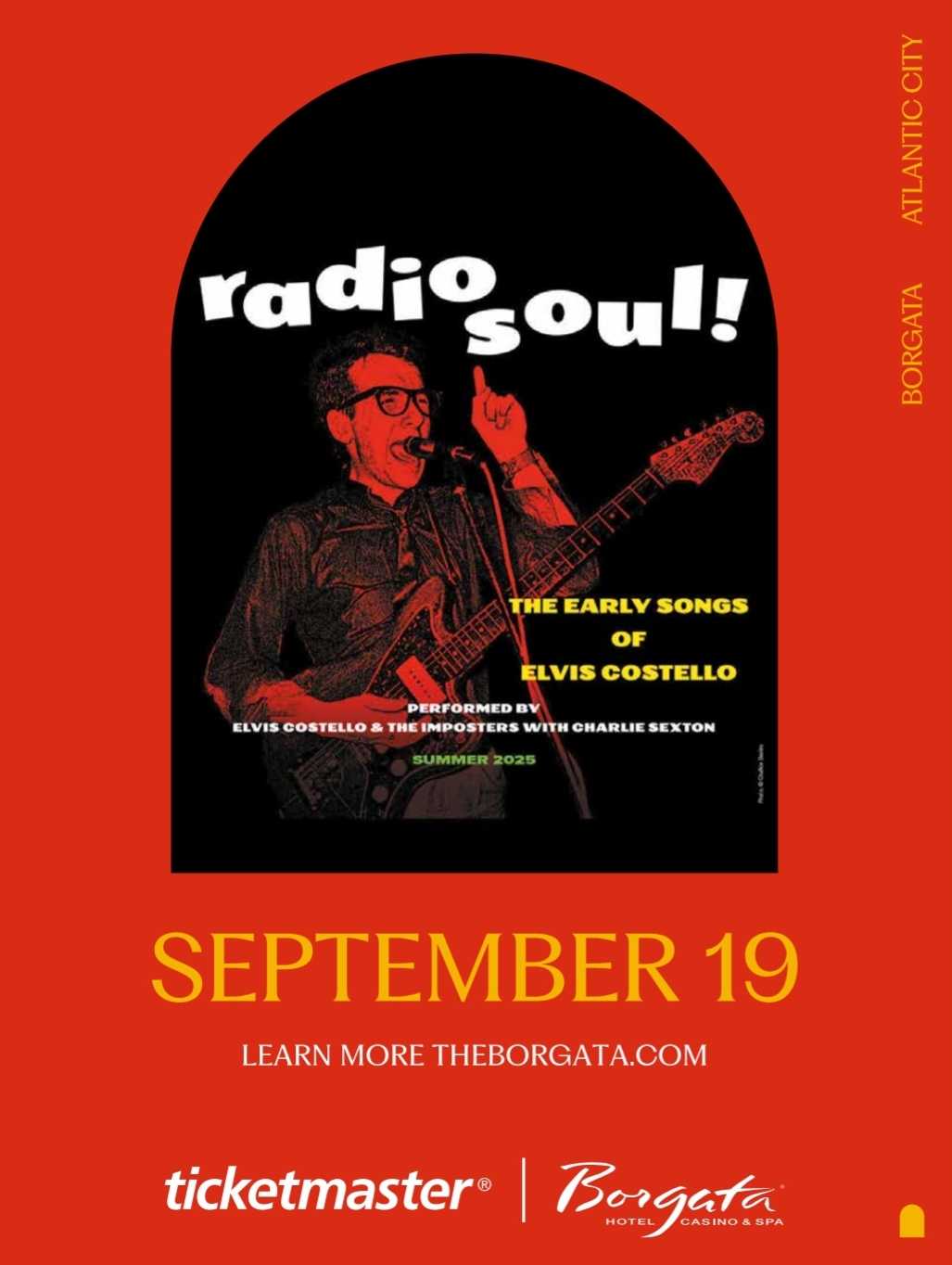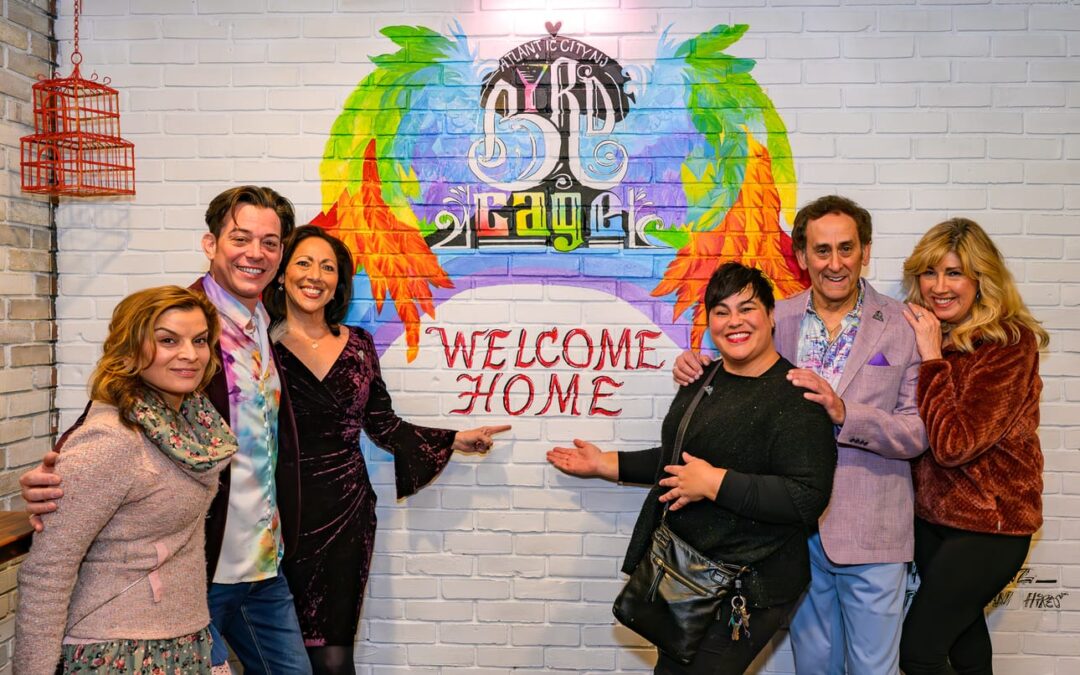Since the inception of this column several seasons ago, a good deal of the history of Atlantic City’s colorful nightlife has been detailed. However, there has been one substantial omission: the LGBTQ clubs and nightlife in the city through the ages.
According to the history books, it goes back more than 100 years. A 2002 piece on Atlantic City’s New York Avenue, published in the Journal of Urban History, reported: “From its earliest days in the late 19th century, Atlantic City’s climate of relative sexual freedom attracted gay white tourists to town.”
Indeed in the 1920s, one of the oldest gay bars on the East Coast on record, the Entertainer’s Club, was opened by one-time Ziegfeld showgirl Louise Mack.
When the military first came to the city in the early 1940s, the LGBTQ community and nightlife flourished for a time. The Entertainer’s Club did well and nightspots featuring drag shows on New York Avenue were quite popular. It’s also been reported that, at that time, a number of LGBTQ-friendly guest houses were open in Atlantic City.
But the success and the relative “openness” didn’t last very long. Around 1942, when the military began occupying many of the city’s largest hotels as lodging for enlisted men in training, or as hospitals for wounded soldiers, a crackdown on what was termed “vice” began. Specifically, the vice in question was female impersonators.
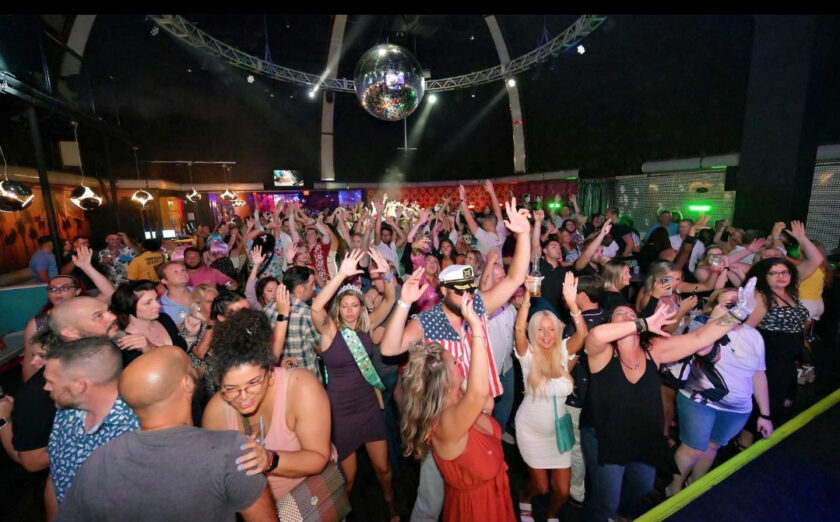
In 1942, Atlantic City Police Chief Belleville Naylor banned female impersonators in area clubs. “Female impersonators as entertainers are no longer allowed to appear in local entertainment venues,” he declared at the time.
By the middle of the century, the situation for the LGBTQ community in Atlantic City was even worse than it had been in the early 1940s. The New Jersey State Alcohol Authority was routinely arresting cross dressers, drag queens and those who “appeared to be homosexuals.”
By the 1970s, things had loosened up considerably. A landmark 1967 legal case, One Eleven Wines & Liquors, Inc., v. Division of Alcoholic Beverage Control, led to a New Jersey Supreme Court ruling that recognized, for the first time, the right of “well behaved apparent homosexuals” to congregate in bars.
With that ruling, and the opening of the first legal casino 11 years later, LGBTQ nightlife flourished, particularly on New York Avenue, with the opening of several venues including the Chez, the Rendezvous, the Chester Inn & Lounge and the Pukalani. It was quite a time, not only for the LGBTQ community in Atlantic City, but for the city’s nightlife in general.
“The Chez was one of the biggest clubs around, and everyone went there,” wrote Mortimer Spreng, a one-time “Miss’d America,” in a 2023 piece for Out in New Jersey magazine. “Although it was a straight club, it was one of the first examples of how integrated Atlantic City was back then, and is now. Gay and straight people went there, danced together and had fun.”
Spreng detailed some other thriving LGBTQ establishments of the time, including the Louise Mack’s Entertainer’s Club, the Grand Central Resort – a complex of bars with a rooming house attached – the After Dark piano lounge and Studio Five, reported Spreng.
Then there was Studio Six, a fondly-remembered venue that was frequented by casino headliners, notably comedian Joan Rivers, who visited every time she was in town.
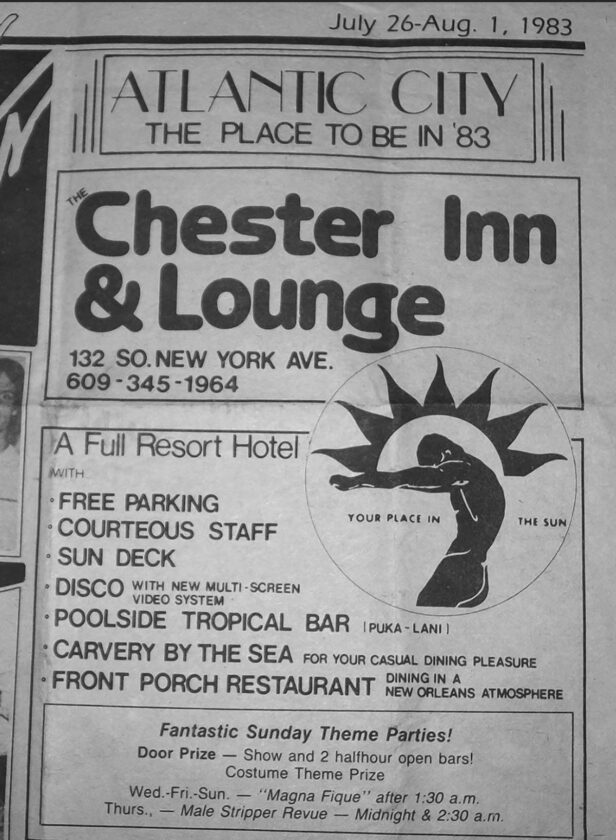
Spreng, who also tended bar at Studio Six, said, “The bars were full. You knew everybody. It would take 15-20 minutes to get a drink, you were saying, ‘Hi’ to so many people. It was truly magical. I miss the camaraderie. It was like family, and the money, being a bartender in the hottest club around, was like money in the bank!”
Author Jonathan Van Meter, who wrote the landmark history of the 500 Club, “The Last Good Time,” often accompanied Rivers to Studio Six.
“I’d go to Studio Six with Joan,” he remembered, “and it was so much fun to roll up to Studio Six with her and watch the crowd devour her, you know what I mean? They would rope off a part of Studio Six for her, and I would just kind of watch as all of these people who I knew responded to the presence of Joan Rivers.”
Giulietta Consalvo, part of the creative team at the Byrdcage, described by PhillyVoice as “Atlantic City’s first full-service LGBTQ bar and restaurant to open in two decades,” also visited Studio Six often during the time she was portraying Judy Garland in a revue show at Resorts.
“It was the atmosphere, the music and the incredible mix of people that would go through those doors,” Consalvo told Out in New Jersey magazine. “You were in a bubble, and then you went back to your life. I always felt it was a good place. It was a safe place. And that’s really what we are trying to recreate with The Byrdcage.”
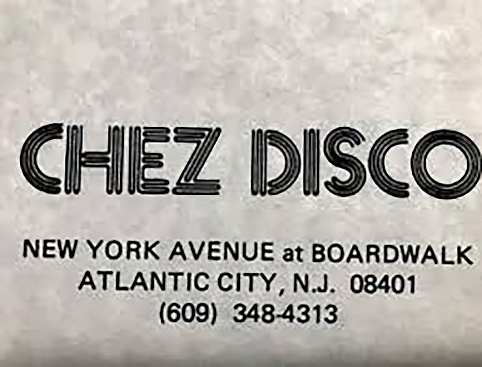
As more and more casinos opened in the 1980s, the LGBTQ establishments on New York Avenue began to close. Casinos bought out the rooming houses; performers and staff members at many of the clubs got higher-paying jobs at the casinos, and the AIDS epidemic facilitated the closure of virtually everything LGBTQ themed.
Today there is an active and visible LGBTQ+ community in the city, though not as centralized, at least in terms of nightlife, as in days of yore.
Four years ago, the Mayor’s Office of LGBTQ+ Affairs was created. The office, according to its official mission statement, was created “to foster equitable living and working conditions for residents who identify as LGBTQ+ and to advocate for LGBTQ+ issues in all areas of city government.”
Further, the office is committed to connecting LGBTQ+ residents to services and support they might need, coordinating city departments to improve the community’s access to services, supporting the growth and development of Atlantic City’s LGBTQ+ communities and organizations, and hosting events, like the annual Rainbow Beach Bash, that “enrich, promote, and bring together the LGBTQ+ community of Atlantic City.”
A hundred years after the opening of Louise Mack’s Entertainer’s Club, progress continues to be made.
Bruce Klauber is the author of four books, an award-winning music journalist, concert and record producer and publicist, producer of the Warner Brothers and Hudson Music “Jazz Legends” film series, and performs both as a drummer and vocalist.
